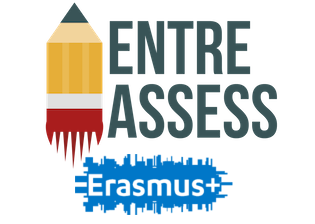Definition: Reflective assessment is when students are included in the assessment process by being asked or required to reflect individually or together with others upon their own learning experience, either in writing or orally.
 Description: Reflective assessment is a method that belongs to the formative assessment family of methods, although it can be used summatively. It is about assessment primarily for the purpose of improving learning. It is further an active and empowering assessment method since it engages the student in self-evaluation and self-reflection. It leans theoretically on the crucial role that meta-cognition plays in learning, in that it asks students to think about their own thinking. Gibbs has specified a cycle of six steps in reflective learning that is often applied when teachers design reflective assessment . Some ways to implement reflective assessment include, for example, asking students to write down “I learned” statements, asking for an oral “turn and talk” with the student next to them, asking students to write down what is clear and unclear from the lesson on a piece of paper, and asking students to compose a journal / dairy.
Description: Reflective assessment is a method that belongs to the formative assessment family of methods, although it can be used summatively. It is about assessment primarily for the purpose of improving learning. It is further an active and empowering assessment method since it engages the student in self-evaluation and self-reflection. It leans theoretically on the crucial role that meta-cognition plays in learning, in that it asks students to think about their own thinking. Gibbs has specified a cycle of six steps in reflective learning that is often applied when teachers design reflective assessment . Some ways to implement reflective assessment include, for example, asking students to write down “I learned” statements, asking for an oral “turn and talk” with the student next to them, asking students to write down what is clear and unclear from the lesson on a piece of paper, and asking students to compose a journal / dairy.
Benefits: Fostering student meta-cognition has been shown to be one of the most powerful ways to improve student achievement . Reflective assessment is a relatively simple and straightforward way to implement formative assessment in the classroom, and also makes students ‘own’ their learning process to a greater extent.
Challenges: Reflective assessment is at odds with the current trend in many education systems towards standardised tests and summative assessment. Some forms of reflective assessment also generate substantial amounts of text that then need to be processed by the teacher to provide feedback back to the student.
Applied to entrepreneurial teaching: Reflective assessment is easy to apply to entrepreneurial teaching that is action-oriented and experiential. Students can be asked to reflect upon their practical entrepreneurial experiences . Since these experiences can often be emotionally strong, reflective assessment will be a natural kind of reflection for entrepreneurial education students. Reflections can be both private for the teacher’s eyes only, and forum based for the entire team or class to reflect upon and discuss together. Reflective assessment can also be easily combined with e-assessment through the use of different kinds of social media and digital discussion forums.


